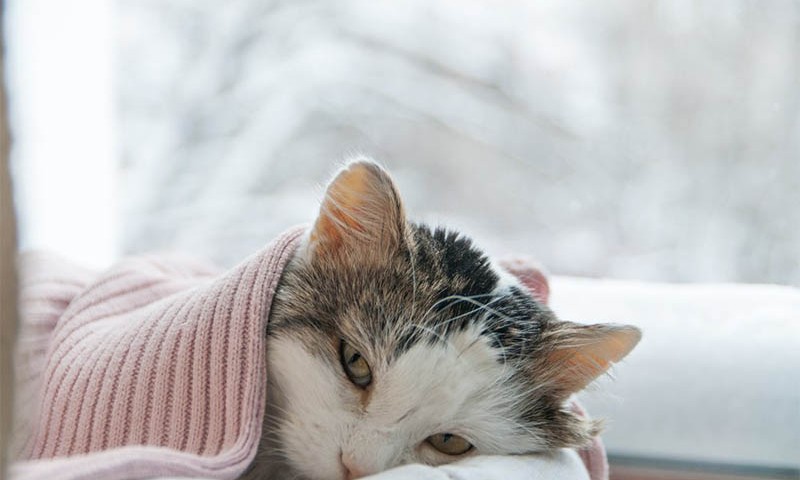
Top 6 reasons cats are better than dogs
February 28, 2019Your cat is another member of your family. Just as with children, you want to be across your fur baby’s health at all times. An annual check up is the way to go for younger kitties.
Outside regular check-ups with your vet however, knowing if your cat is sick may be difficult. If your cat is over 7 years old, then a quarterly or half-yearly check-up is recommended.
Nevertheless, continue reading to find out what signs you need to look for to determine if your cat isn’t feeling the best:
Changed Litter Box Habits & Strain:
For the most part, cats are tidy creatures. This is particularly true when it comes to their litter box. Rarely will you see a cat make a mess outside its litter box. They also won’t use a dirty litter box.
If you notice your cat experience strain while urinating or defecating, take it to the vet immediately. If your cat is not producing anything when it visits its litter box, there may be a blockage somewhere.
Another sign to watch out for is your cat crying while trying to go to the bathroom.
Sudden Weight Gain/loss:
If your cat is losing/gaining weight for no apparent reason, it’s time to take them to the vet – especially if weight changes are sudden.
Given a cat’s smaller size, if it loses 1 – 2kg in a short period of time then there’s cause for concern.
While weight loss in some older cats may be normal due to loss of muscle mass, it could be an indicator of cancer. On the other hand, if your cat becomes obese it could lead to diabetes or heart disease.
Blood in urine, stool or vomit:
Urine is your cat’s blood can indicate a urinary tract disorder. This is particularly true your cat experiences strain while trying to urinate and it visits its litter box more frequently.
There are a variety of other diseases your cat may have if it’s urinating blood e.g. parasitic infections.
If your cat is vomiting then take it to the vet immediately – especially if it’s vomiting blood. If you notice your cat vomits what looks like coffee grounds, this is partially digested blood.
Diarrhea or Constipation:
Diarrhea can lead to dehydration, particularly if it’s left untreated. Diarrhea in cats can be fatal. It occurs when too much water is expelled with the stool.
Constipation, on the other hand, occurs when your cat produces small, hard and infrequent stools. Hairballs are a common cause. Constipation can lead to weight loss and anorexia.
Cats will usually defecate once or twice per day. An occasional watery or hard stool shouldn’t be alarming. If it persists however, take your cat to the vet immediately.
Changes in appetite or drinking habits:
If you notice your cat refusing to eat/drink get them to a vet immediately. It’s a very clear indicator that your cat isn’t feeling the best and might even be experiencing internal pain.
On the other hand, if your cat is drinking water more frequently – and by consequence urinating more frequently – it could be a sign of diabetes, hyperthyroidism or kidney disease.
Mobility problems:
While stiffness in older cats may be an indicator of arthritis, it could be a major cause for concern with younger cats. In any case, take your kitty to the vet when you notice this.
Behavioural changes:
Sudden changes in your cat’s day-today behaviour and personality are both signs of a sick cat.
For example, if your cat suddenly becomes aggressive when you touch it then it may be experiencing pain.
As you can tell, it’s important to always be attentive. If you notice any unusual changes in your cat then the first thing you should do is take it to a vet at the first opportunity.

